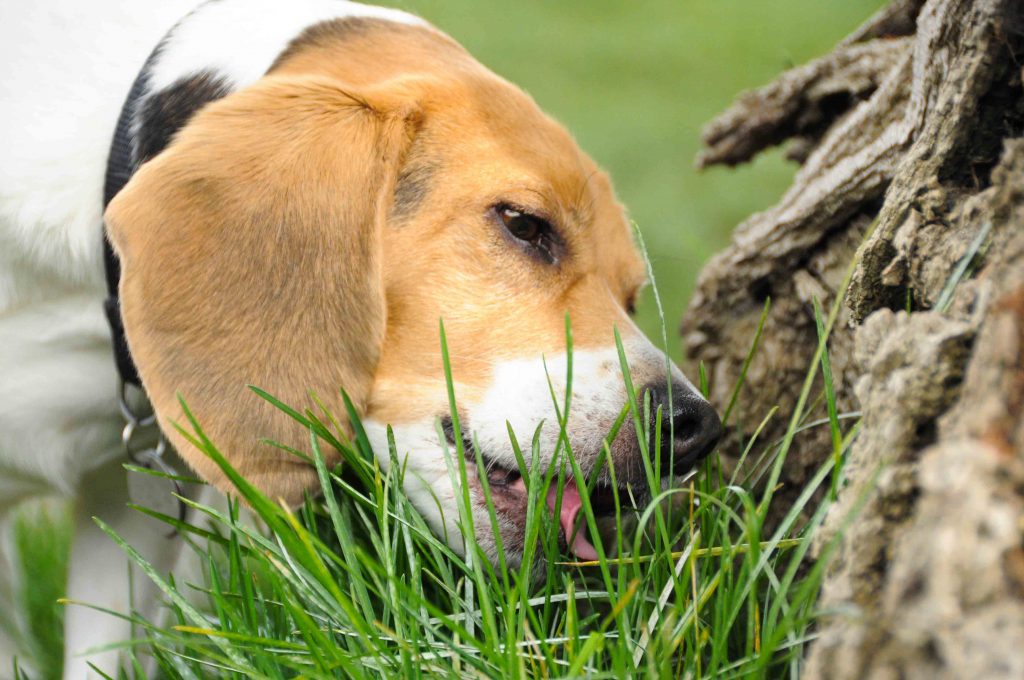Beyond Bon Appetit: Why Your Puppy Eats Poop
 Dealing with your pet’s poop is one of the less glamorous aspects of pet ownership, but it’s just as necessary to their health and well-being as proper diet, exercise, and quality medical care. Having a puppy who eats poop, however, is something that many new pet owners weren’t expecting and aren’t sure how to deal with.
Dealing with your pet’s poop is one of the less glamorous aspects of pet ownership, but it’s just as necessary to their health and well-being as proper diet, exercise, and quality medical care. Having a puppy who eats poop, however, is something that many new pet owners weren’t expecting and aren’t sure how to deal with.
Poop-eating, also called coprophagia, is actually a normal – albeit gross–dog behavior. At Lone Tree Veterinary Medical Center we believe in tackling life’s stinky questions head on, and we are happy help you figure out why your puppy eats poop and what you can do about it.
Why Your Puppy Eats Poop
Discovering that your sweet, cuddly puppy is living a double life as a poop-eater can be shocking, and downright disgusting. A dog may eat his or her own feces, or prefer to snack on the droppings left behind by other dogs, cats, rabbits, horses, etc..
Your dog may be eating poop for a variety of reasons, including:
- He or she likes the smell or taste (the feces of other animals may appeal to your dog due to the unique smell and taste, or even the fiber content)
- Hunger
- Lack of, or malabsorption of, key ingredients in the diet
- Boredom
- A territorial response to the presence of other pets in the home
- For attention (even negative attention)
- The presence of parasites
Many times, coprophagia is simply a part of normal puppy behavior. Dogs explore their worlds with their mouths, and eating feces may be simply one more way your dog interacts with his or her environment.
What You Can Do
Normal or not, most pet owners don’t relish the thought of their precious pooch raiding the litter box, nor do they enjoy being greeted by a stinky puppy nose. If your puppy eats poop, your first step should be to reach out to the team at Lone Tree Veterinary Medical Center to have your pet evaluated for any underlying health concerns.
If there’s no medical reason behind why your puppy eats poop, explore the following ideas for mitigating the behavior:
- A tired dog tends to be better behaved than one who is filled with excess energy. Be sure to provide your pup with lots of exercise (daily walks and playtime work great).
- Keep your dog from getting bored by offering plenty of opportunities for mental stimulation in the form of interesting toys and food puzzles (rotate them on a daily or weekly basis to maximize your pet’s interest). Obedience training and agility courses can also be very helpful for keeping a pet’s mind focused and busy.
- Prevent your pet’s access to feces by taking him or her outside on a leash.
- Move the litter box to a higher location or one inaccessible to your dog.
- Talk with your veterinarian about changes you can make to your pet’s diet to deter him or her from eating feces, or to provide additional nutrients that may be lacking.
Pets provide us with an endless source of love and laughter, even when we’re perplexed by a poop-eating pup! Don’t hesitate to give us a call for more information or to set up an appointment for your pet.



